Managing a dog with anxiety can be challenging. We all want our furry friends to be happy and will do whatever we can to help. Tryptophan for dogs is a dietary supplement commonly recommended online for dog anxiety and other concerns.
But what is tryptophan, and what does the research say about its health benefits, and are there any effective natural alternatives to help dogs with anxiety? In this article, we'll answer these questions, delve into symptoms and causes of anxiety in dogs, and more.
Benefits of L-Tryptophan for Dogs
Research on the benefits of tryptophan supplementation for dogs is limited. One study of eleven dogs found that tryptophan may reduce territorial aggression when combined with a low-protein diet.
Here's what we can say for sure: tryptophan supplements are beneficial for dogs suffering from a dietary deficiency. Federal regulations require complete dog foods to contain tryptophan, so most dogs receive a sufficient amount. If you feed a homemade diet, carefully calculate the nutrient content with your veterinarian to avoid tryptophan deficiency and other imbalances.
There is evidence that dogs of different breeds, sizes, and ages may process tryptophan differently. If you're concerned about tryptophan deficiency, reach out to your veterinarian. They'll carefully review your dog's symptoms and help you build an appropriate management plan.
What Is L-Tryptophan for Dogs?
Tryptophan, specifically L-tryptophan, is an essential amino acid. In other words, this nutrient must be provided by your dog's diet. Without it, symptoms of tryptophan deficiency will develop.
Why is Tryptophan Essential?
L-tryptophan is a biological building block with many uses in your dog's body. For example, tryptophan plays a crucial role in producing serotonin and melatonin.
Both serotonin and melatonin help regulate mood, sleep, appetite, and other functions.

Can Tryptophan Help Dog Anxiety?
Anxiety in dogs is a common concern for which tryptophan supplements are advertised. Typically, anxious dogs are nervous, frightened by harmless stimuli, or prone to undesired behaviors.
Typical symptoms of anxiety in dogs include:
- Destructive behavior (chewing, digging, etc.)
- Excessive barking
- Restlessness
- Ears pulled back
- Whining
- Drooling
- Excessive panting
- Trembling
- Aggression
Anxiety in dogs almost always has an underlying cause. If you notice these signs in your dog, consult your veterinarian to determine the best course of treatment.
Tryptophan Side Effects for Dogs
As with any supplement, it's important to use L-tryptophan safely. Always consult with your vet before starting any new supplement regimen. L-tryptophan supplements could interact with certain medications and may not be suitable for dogs with certain health conditions.
For healthy dogs, side effects of L-tryptophan are generally mild but can include stomach upset and loss of appetite. Contact your veterinarian with any side effect concerns.
Will L-Tryptophan Make My Dog Drowsy?
Tryptophan should not make your dog tired or sleepy.
If your dog seems unusually tired after taking L-tryptophan, stop giving the supplement and consult your veterinarian.
Dosing Information of Tryptophan for Dogs
The appropriate dose of L-tryptophan can vary depending on a dog's size, age, and overall health status. After discussing tryptophan supplements with your veterinarian, choose a product formulated specifically for dogs. Tryptophan is available in a variety of flavored chews, powders, and capsules, depending on your dog's preferences.
The concentration of tryptophan per serving will vary by brand and product type, so follow the manufacturer's dosing instructions closely. Choose a company that offers independent third-party testing to ensure your dog gets an accurate dose.
Conclusion
L-tryptophan is an essential amino acid and a popular dietary supplement for dogs. Tryptophan supplements are certainly beneficial for dogs with a nutrient deficiency. However, limited research means that L-tryptophan's effectiveness for concerns like anxiety is unknown.
In the end, each dog is unique. The best approach for managing anxiety will likely include traditional medication, environmental changes, and behavior training. As their name implies, supplements are "something extra." They can support our pets' health but shouldn't be used alone.
Always consult your veterinarian before starting any new supplement regimen. Together, you can build a new routine to help your dog live their best, happiest life.
Tryptophan for Dogs FAQs
What does tryptophan do for dogs?
Tryptophan supports serotonin and melatonin production, which influence your dog's mood, sleep, and overall emotional balance.
Can tryptophan for dogs help with anxiety?
Tryptophan may support mood regulation, but research is limited. Always consult your veterinarian for anxiety treatment options.
Is tryptophan safe for dogs to take daily?
Tryptophan can be safe when properly dosed, but it may interact with medications. Speak with your vet before daily use.
What are the side effects of tryptophan for dogs?
Possible side effects include mild digestive upset or reduced appetite. Contact your veterinarian if symptoms occur.
How much tryptophan should I give my dog?
Dosing varies by product and your dog’s health needs. Always follow your veterinarian’s guidance and the product label.

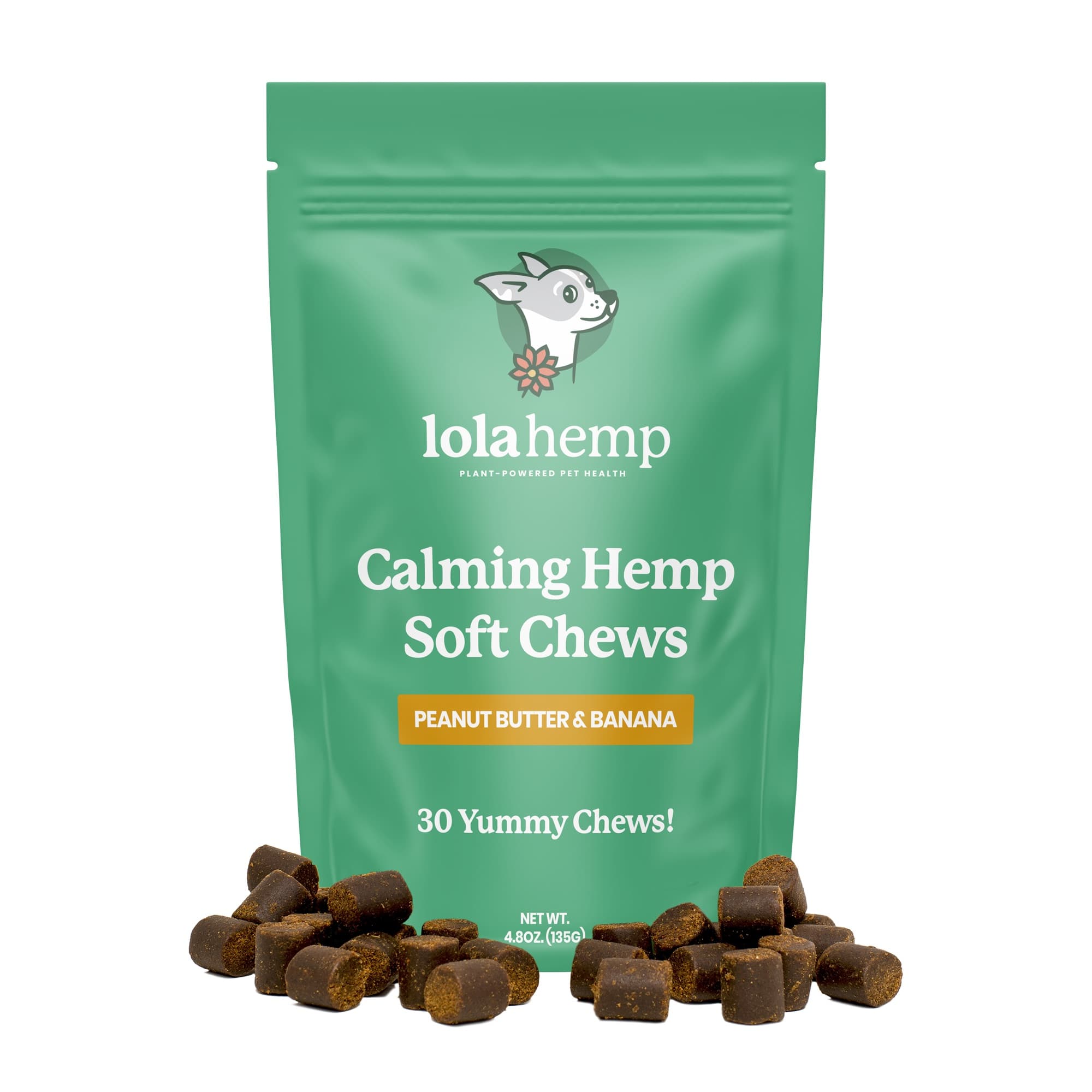
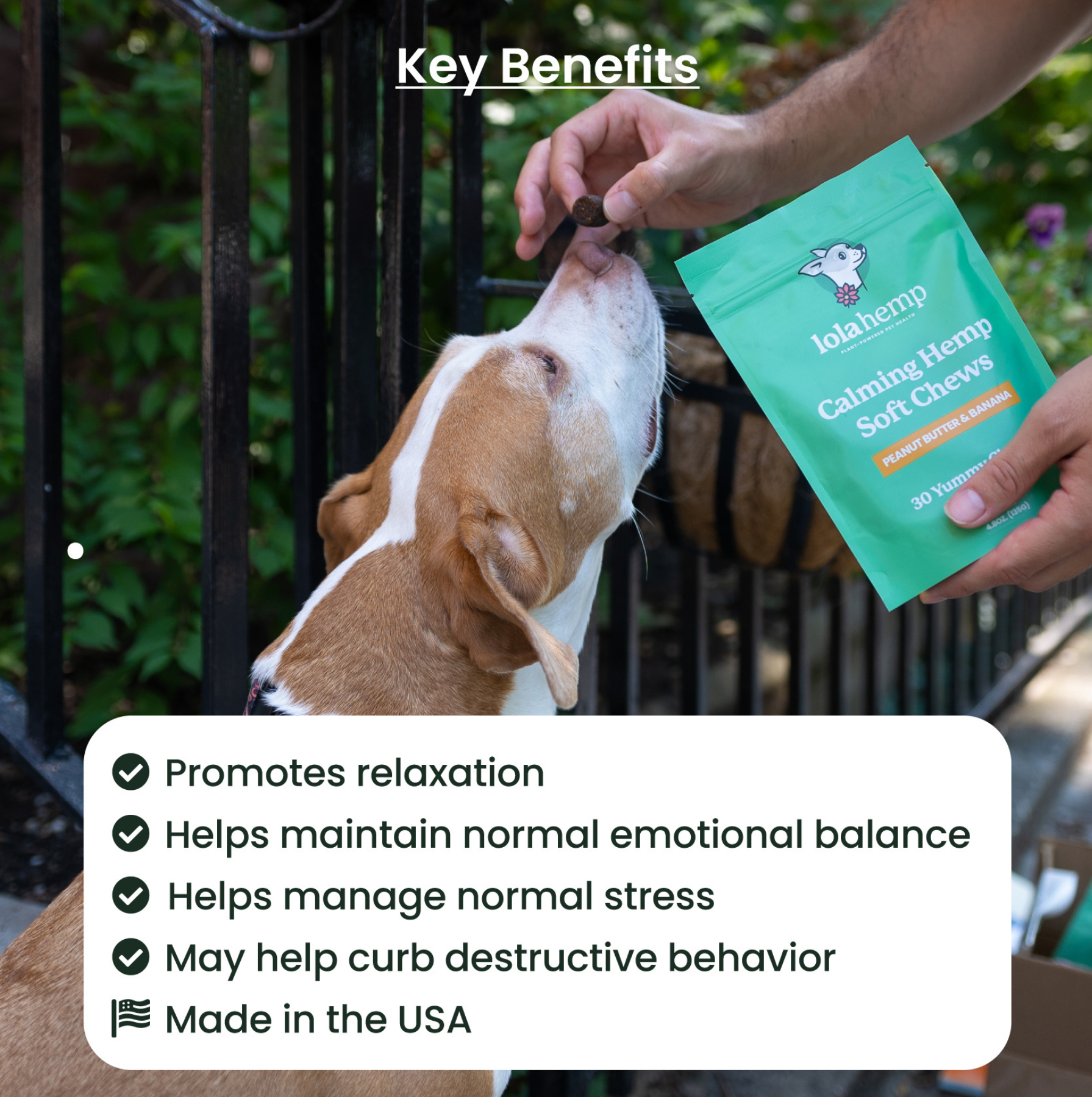
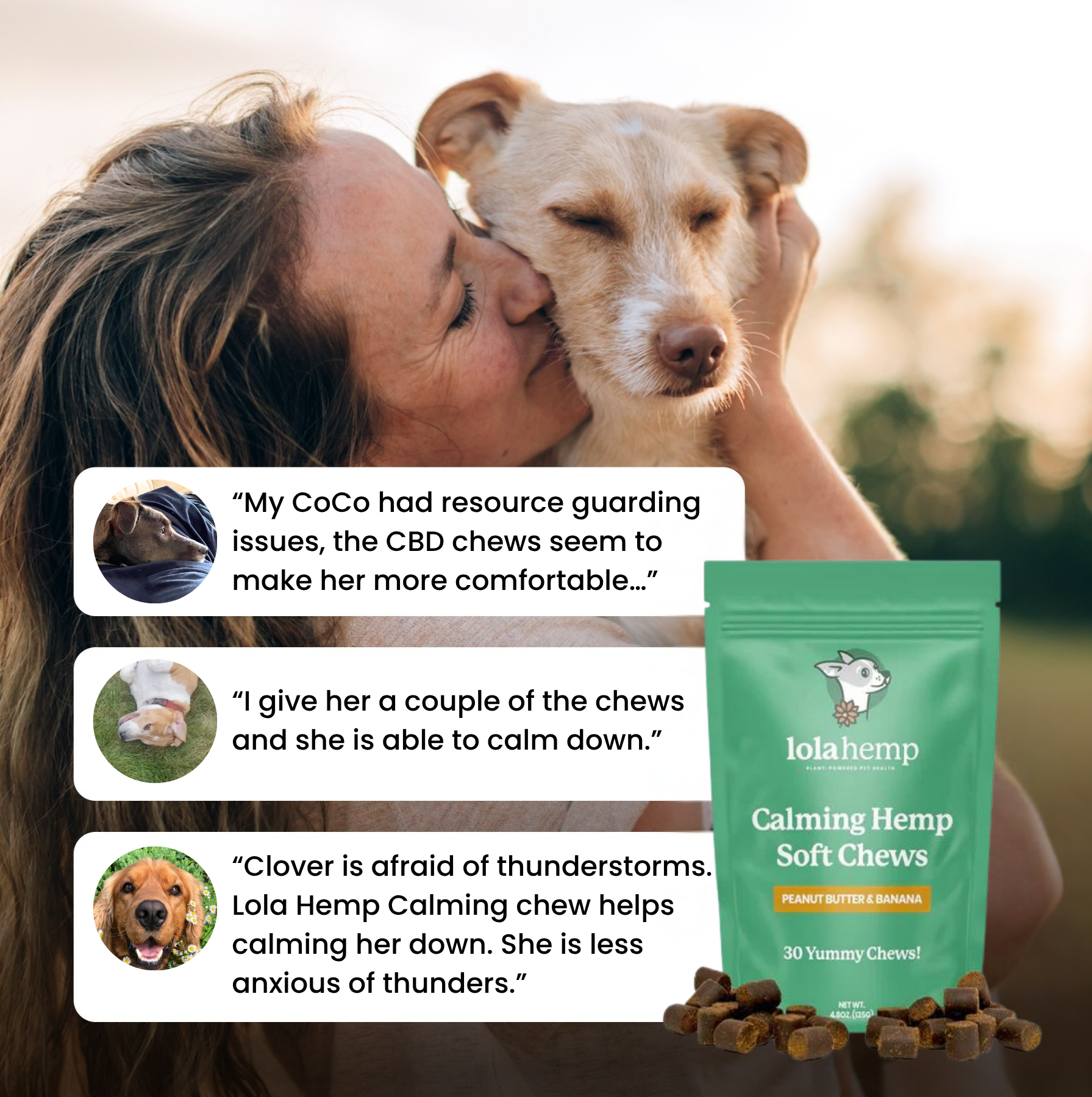
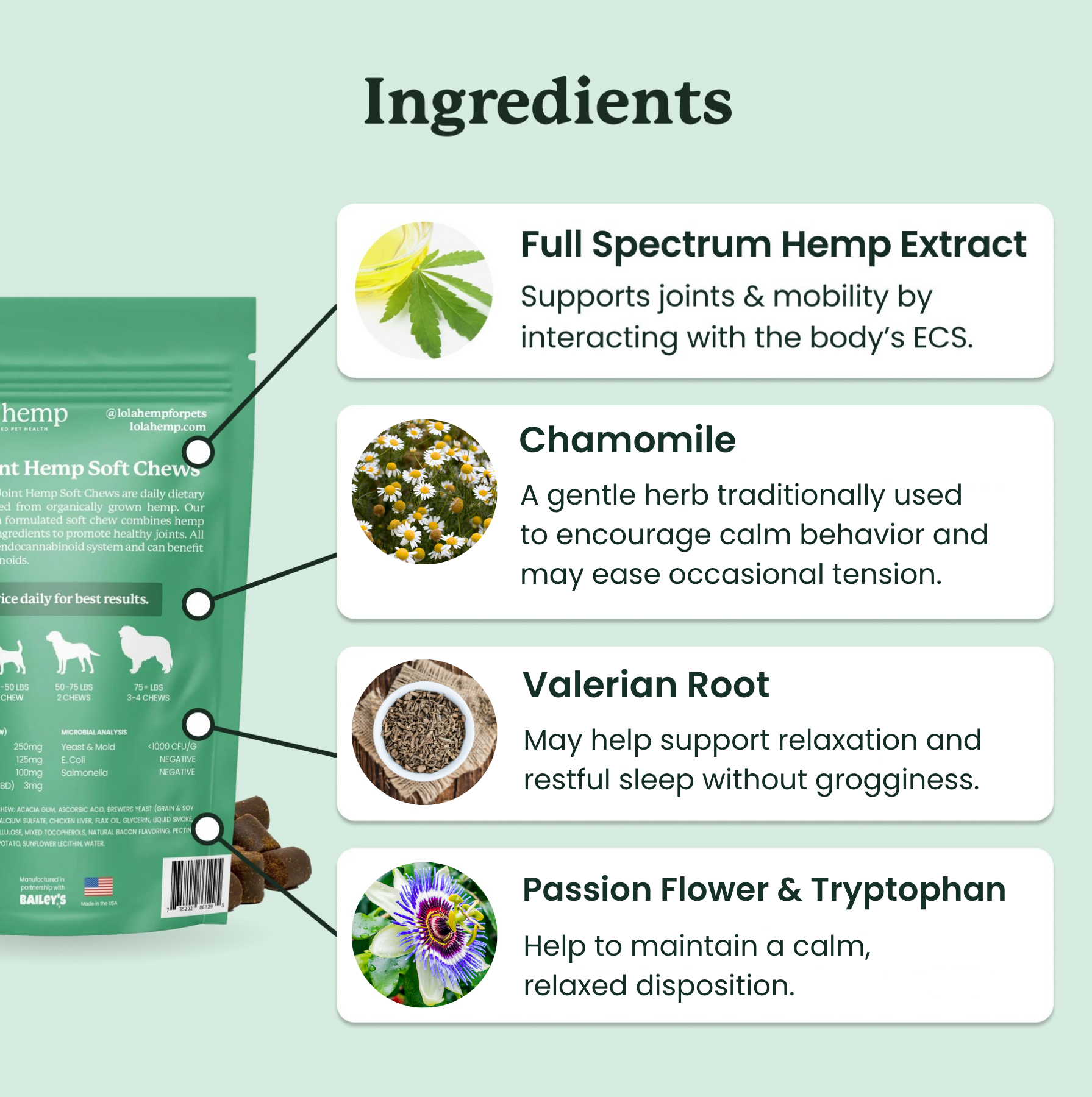
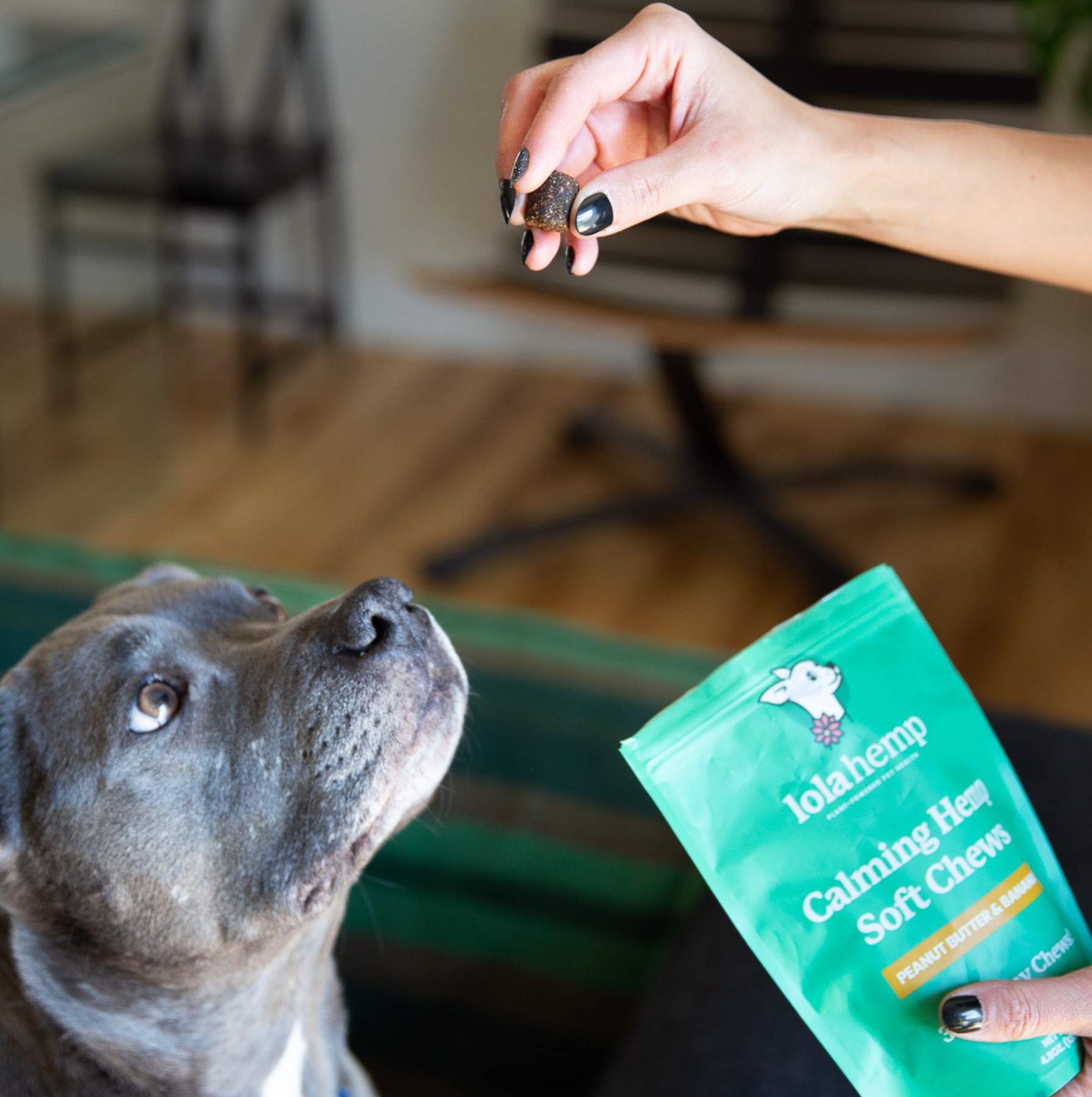
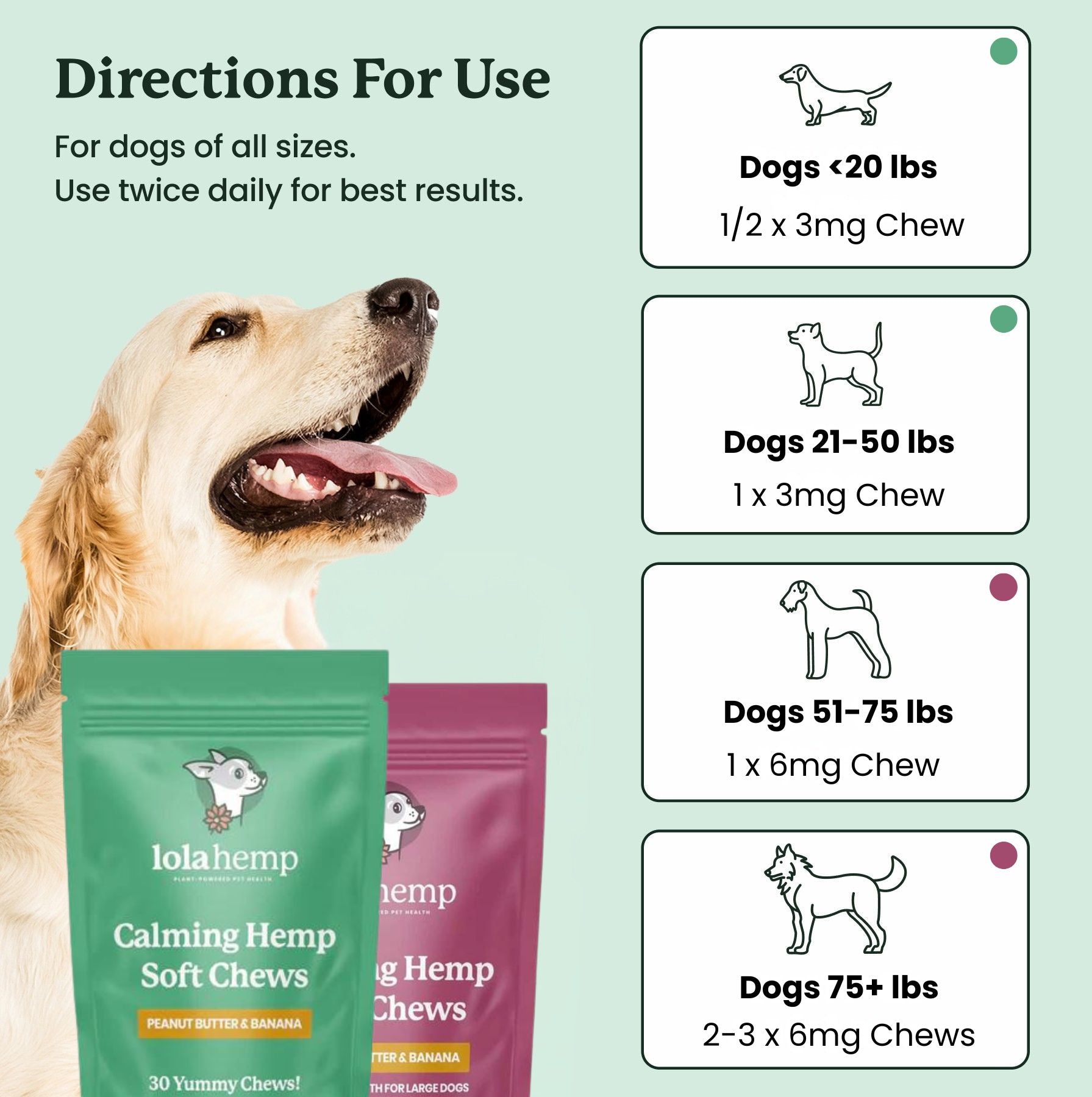



Comment
This is such a great article. I have an anxious pup and will take this advice to heart.
Thanks!
Catherine